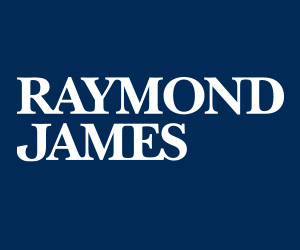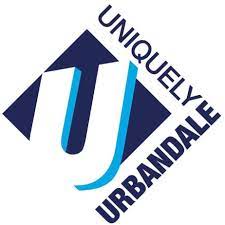IEDA awards tax credits to former Maytag, two Des Moines adaptive reuse projects

Mike Mendenhall Oct 30, 2023 | 4:18 pm
4 min read time
1,012 wordsAll Latest News, Economic DevelopmentThe latest round of projects to be selected for the state’s Redevelopment Tax Credit Program for brownfield and grayfield sites includes the planned redevelopment of four of the original Maytag factory buildings in Newton and mixed-use historic rehabilitations on Des Moines’ north side and Highland Park neighborhood.
The Iowa Economic Development Authority board voted Oct. 20 to award a total of $21.01 million for 27 projects statewide for fiscal year 2024, according to an agency report, that can be used to help finance the acquisition, remediation and redevelopment of eligible abandoned, underutilized or environmentally contaminated sites in Iowa.
Former Maytag factory
Christensen Development was granted an up to 12% grayfield tax credit capped at $1.25 million for its estimated $32 million conversion of four former Maytag factory buildings into 70 market rate apartments and 50 extended stay hotel rooms.
According to the IEDA board documents, Christensen Development applied for a 24% brownfield tax credit but the final award was lower than the developer’s request.
The former factory space is part of the broader redevelopment of Newton’s Legacy Plaza campus, which was largely left vacant when Maytag Corp. relocated its headquarters to Benton Harbor, Mich., in 2007 after the company was acquired by Whirlpool.
The city of Newton, Jasper County and Christensen Development signed a three-way agreement in February to adapt Maytag Buildings 1, 2, 16 and 50 into the high-end hotel and bar and apartment building, according to the Newton Daily News.
North Des Moines cold storage redevelopment
The board also awarded a capped $1.5 million, 24% brownfield tax credit to Cold Storage Rehab for plans to rehabilitate the historic portion and expand a vacant former cold storage warehouse adjacent to Riverview Park in Des Moines into a restaurant with outdoor patio, fitness gym, office space, bike shop and apartments.
IEDA Marketing and Communications Team Lead Kanan Kappelman said in an email Tuesday that the estimated $13.45 million project cost includes an $11.04 million addition that will have 20 of the project’s 36 “high-end” apartments and outdoor activity space for bike trails and waterway connections.
The awards published in the IEDA meeting packet list the project cost at $12.54 million.
The nonprofit Neighborhood Development Corporation is redeveloping and owns the building through Cold Storage Redevelopment, according to county property records and the organization’s executive director, Abbey Gilroy.
The Des Moines-based nonprofit is supported by the city and Polk County in its strategy of finding and investing in underused commercial nodes that could spark more redevelopment in a neighborhood or area.
Gilory said Neighborhood Development Corporation bought the cold storage property in February 2023, but began conversations with the previous building owner several years ago as the city began redevelopment of Riverview Park and its amphitheater.
She said the organization has not signed tenants for the planned commercial and restaurant spaces.
The cold storage structure was built in 1937 on a 3-acre site and has an assessed value of $538,000, according to county records.
“The interior of the 103,000 [-square-foot] structure is littered with barrels of hydraulic type fluids, large cooling equipment, pipes, appliances and substantial debris,” Kappelman said in the email. “The roof is currently being held up in places by stacked pallets. In addition to the condition, the building contains an exorbitant amount of asbestos.”
The asbestos abatement and interior demolition of the building is nearing $900,000, she said.
According to IEDA, the property has been vacant for several years and is on the city’s nuisance list.
36 on 6 LLC
The $3.695 million plan to renovate the historic two-story building and former home of Klein’s Department Store and Knights of Pythias meeting space in the Highland Park Neighborhood Commercial District will receive a 12% grayfield tax credit capped at $240,000.
According to Kappelman, plans include build-out of four second-floor workforce housing units.
Kappelman said in her email that a lease has been executed with an “established restaurant operator in Des Moines” for a renovated retail space in the building at 3614 Sixth Ave. in Des Moines.
“Their expertise in the industry will assure the space will be filled and offer the community a new restaurant option, which is gravely needed in this redevelopment corridor,” Kappelman said. “In addition to the renovation of [the] first and second floor, the development plan also includes the rehab of the basement space, which the restaurant operator plans to use as unique restaurant space.”
Building co-owner and co-developer Tim Bratvold said Friday that the restaurant tenant has asked that its name not be released at this time.
According to Bratvold, the existing tenants are on short-term leases and will not remain in the building after the renovations.
The renovation will also improve the 80-year-old building’s storefront facade, including awning repairs, brick repairs and window replacements that will return the building to its historic look, Kappelman said.
Bratvold and his wife, Chloe Bratvold, own the building through 36 on 6. Tim Bratvold, who is also director of business development at Estes Construction, said they hope to begin construction in the first quarter of 2024.
What’s the program?
The IEDA, a state government agency, reviewed 53 applications for the FY24 Brownfield and Grayfield tax credit awards, according to the report.
Developers can apply for the program’s tax credits up to 24% of a qualifying investment in a Brownfield; up to 30% of the qualifying investment if the project meets the requirements of a green development; up to 12% of a qualifying investment located in a grayfield; or up to 15% of the qualifying investment if the project meets the requirements of a green development.
The IEDA report defines tax credit eligible brownfield properties as abandoned, idled or underutilized industrial or commercial facilities where expansion or redevelopment is complicated by real or perceived environmental contamination.
An eligible grayfield property could be an abandoned public building or industrial or commercial property that has been developed and has infrastructure in place but the site’s current use is “outdated or prevents a better or more efficient use of the property,” according to the report.
View the full list of projects selected here.









